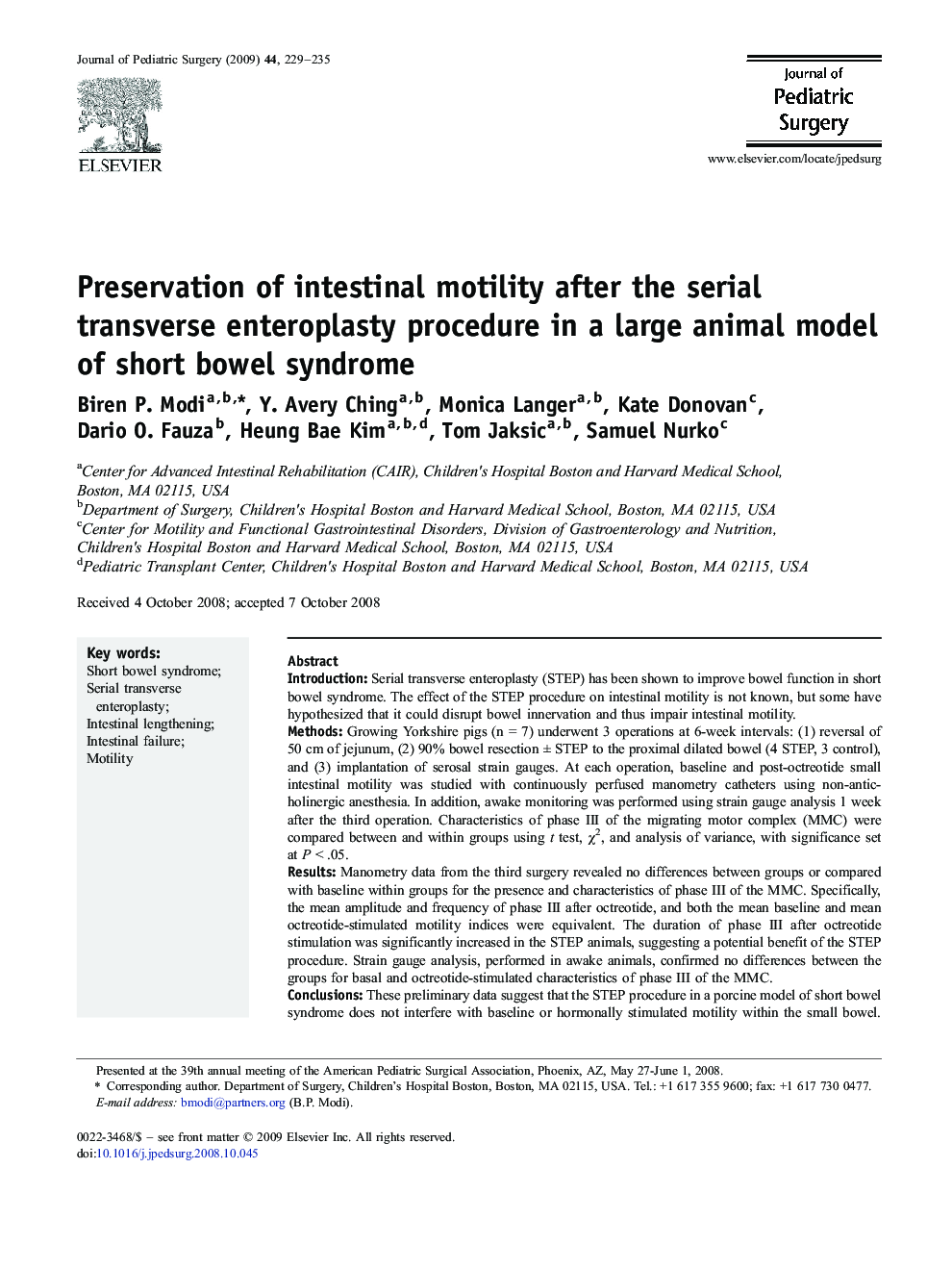| کد مقاله | کد نشریه | سال انتشار | مقاله انگلیسی | نسخه تمام متن |
|---|---|---|---|---|
| 4159743 | 1273831 | 2009 | 7 صفحه PDF | دانلود رایگان |

IntroductionSerial transverse enteroplasty (STEP) has been shown to improve bowel function in short bowel syndrome. The effect of the STEP procedure on intestinal motility is not known, but some have hypothesized that it could disrupt bowel innervation and thus impair intestinal motility.MethodsGrowing Yorkshire pigs (n = 7) underwent 3 operations at 6-week intervals: (1) reversal of 50 cm of jejunum, (2) 90% bowel resection ± STEP to the proximal dilated bowel (4 STEP, 3 control), and (3) implantation of serosal strain gauges. At each operation, baseline and post-octreotide small intestinal motility was studied with continuously perfused manometry catheters using non-anticholinergic anesthesia. In addition, awake monitoring was performed using strain gauge analysis 1 week after the third operation. Characteristics of phase III of the migrating motor complex (MMC) were compared between and within groups using t test, χ2, and analysis of variance, with significance set at P < .05.ResultsManometry data from the third surgery revealed no differences between groups or compared with baseline within groups for the presence and characteristics of phase III of the MMC. Specifically, the mean amplitude and frequency of phase III after octreotide, and both the mean baseline and mean octreotide-stimulated motility indices were equivalent. The duration of phase III after octreotide stimulation was significantly increased in the STEP animals, suggesting a potential benefit of the STEP procedure. Strain gauge analysis, performed in awake animals, confirmed no differences between the groups for basal and octreotide-stimulated characteristics of phase III of the MMC.ConclusionsThese preliminary data suggest that the STEP procedure in a porcine model of short bowel syndrome does not interfere with baseline or hormonally stimulated motility within the small bowel. These findings further support the STEP procedure as a safe option for the surgical management of short bowel syndrome.
Journal: Journal of Pediatric Surgery - Volume 44, Issue 1, January 2009, Pages 229–235